I think that the usage of each one is way too subjective for me to get in on that, so i'll just stick to numbers.
I compared the time it takes to create and to change a variable in a dict, a new_style class and a new_style class with slots.
Here's the code i used to test it(it's a bit messy but it does the job.)
import timeit
class Foo(object):
def __init__(self):
self.foo1 = 'test'
self.foo2 = 'test'
self.foo3 = 'test'
def create_dict():
foo_dict = {}
foo_dict['foo1'] = 'test'
foo_dict['foo2'] = 'test'
foo_dict['foo3'] = 'test'
return foo_dict
class Bar(object):
__slots__ = ['foo1', 'foo2', 'foo3']
def __init__(self):
self.foo1 = 'test'
self.foo2 = 'test'
self.foo3 = 'test'
tmit = timeit.timeit
print 'Creating...\n'
print 'Dict: ' + str(tmit('create_dict()', 'from __main__ import create_dict'))
print 'Class: ' + str(tmit('Foo()', 'from __main__ import Foo'))
print 'Class with slots: ' + str(tmit('Bar()', 'from __main__ import Bar'))
print '\nChanging a variable...\n'
print 'Dict: ' + str((tmit('create_dict()[\'foo3\'] = "Changed"', 'from __main__ import create_dict') - tmit('create_dict()', 'from __main__ import create_dict')))
print 'Class: ' + str((tmit('Foo().foo3 = "Changed"', 'from __main__ import Foo') - tmit('Foo()', 'from __main__ import Foo')))
print 'Class with slots: ' + str((tmit('Bar().foo3 = "Changed"', 'from __main__ import Bar') - tmit('Bar()', 'from __main__ import Bar')))
And here is the output...
Creating...
Dict: 0.817466186345
Class: 1.60829183597
Class_with_slots: 1.28776730003
Changing a variable...
Dict: 0.0735140918748
Class: 0.111714198313
Class_with_slots: 0.10618612142
So, if you're just storing variables, you need speed, and it won't require you to do many calculations, i recommend using a dict(you could always just make a function that looks like a method). But, if you really need classes, remember - always use __slots__.
Note:
I tested the 'Class' with both new_style and old_style classes. It turns out that old_style classes are faster to create but slower to modify(not by much but significant if you're creating lots of classes in a tight loop (tip: you're doing it wrong)).
Also the times for creating and changing variables may differ on your computer since mine is old and slow. Make sure you test it yourself to see the 'real' results.
Edit:
I later tested the namedtuple: i can't modify it but to create the 10000 samples (or something like that) it took 1.4 seconds so the dictionary is indeed the fastest.
If i change the dict function to include the keys and values and to return the dict instead of the variable containing the dict when i create it it gives me 0.65 instead of 0.8 seconds.
class Foo(dict):
pass
Creating is like a class with slots and changing the variable is the slowest (0.17 seconds) so do not use these classes. go for a dict (speed) or for the class derived from object ('syntax candy')
